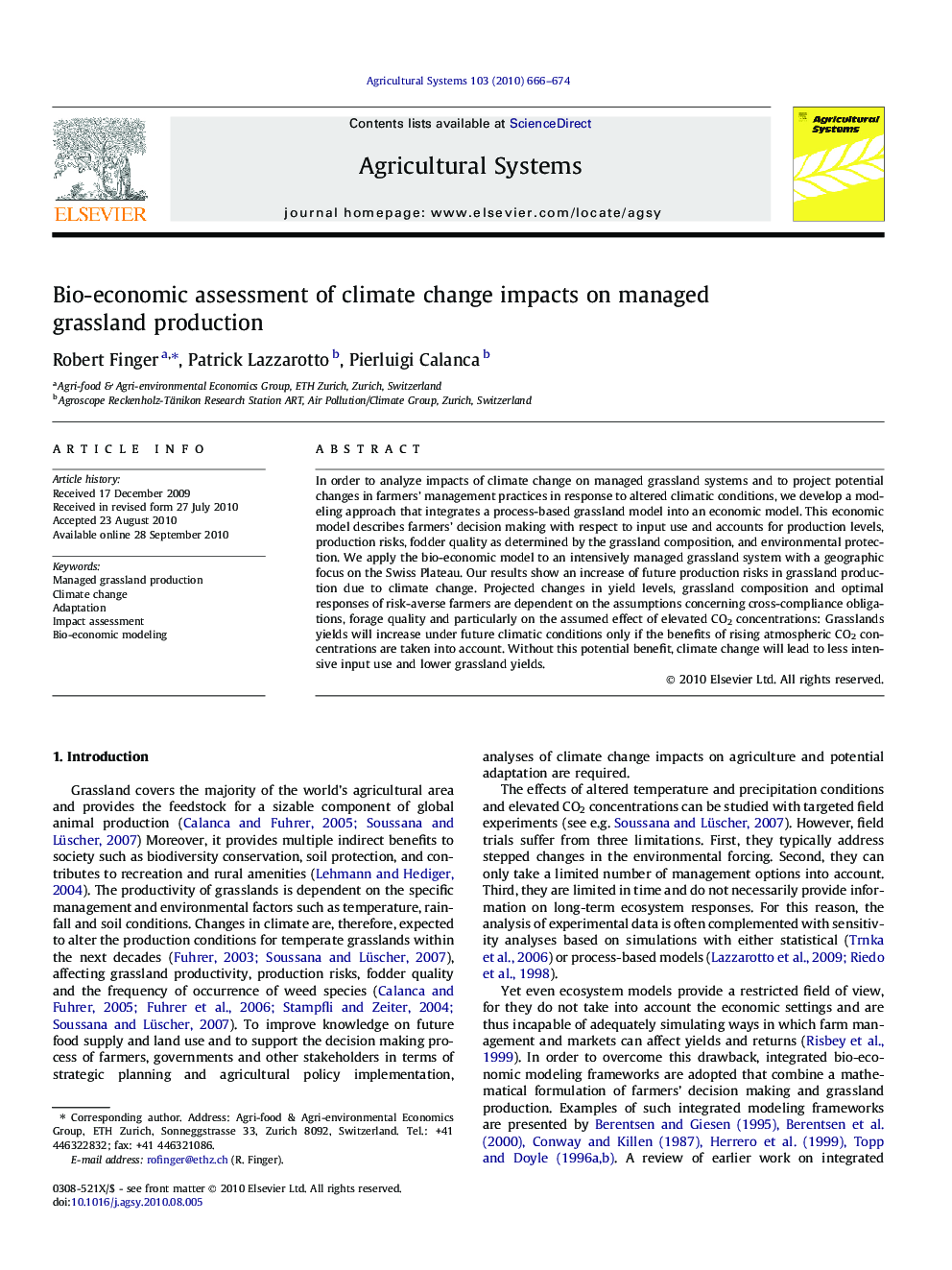| Article ID | Journal | Published Year | Pages | File Type |
|---|---|---|---|---|
| 4491537 | Agricultural Systems | 2010 | 9 Pages |
In order to analyze impacts of climate change on managed grassland systems and to project potential changes in farmers’ management practices in response to altered climatic conditions, we develop a modeling approach that integrates a process-based grassland model into an economic model. This economic model describes farmers’ decision making with respect to input use and accounts for production levels, production risks, fodder quality as determined by the grassland composition, and environmental protection. We apply the bio-economic model to an intensively managed grassland system with a geographic focus on the Swiss Plateau. Our results show an increase of future production risks in grassland production due to climate change. Projected changes in yield levels, grassland composition and optimal responses of risk-averse farmers are dependent on the assumptions concerning cross-compliance obligations, forage quality and particularly on the assumed effect of elevated CO2 concentrations: Grasslands yields will increase under future climatic conditions only if the benefits of rising atmospheric CO2 concentrations are taken into account. Without this potential benefit, climate change will lead to less intensive input use and lower grassland yields.
Research highlights► Climate change is likely to increase production risks in grassland production. ► Future grassland yields depend on the assumed effect of elevated CO2 concentrations. ► Increasing and decreasing intensities are possible adaptation responses. ► Cross-compliance obligations influence optimal grassland management.
